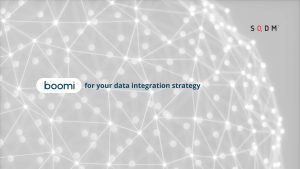Currently, three problems can be found with the internal and external information of companies: excess information that is not manageable, difficult access to specific data and little selectivity when conserving this data. Without a doubt, these issues can delay the productivity of large companies, especially if this data and information comes from customers.
One of the failures of companies is not taking into account that each client has a different need and that as long as it generates some sales, it doesn’t represent preoccupation.
Each client is different, each client has a way to communicate.
The success is to enter the same circle, in which the client can feel comfortable, listened to and well cared for.
How to reach these customers and stand out from the competition? The answer is simple and there are four words: Profitability, speed, innovation and accessibility. All of these words are related to the customer, and that is why CRM exists.
Customer Relationship Management (CRM)
It is a business methodology that is based on the management or administration of the relationship between the customer and the company.
Customer satisfaction, loyalty and purchase is the main objective, through the management of customer files, in which conversations and interactions are stored.
Favor productivity in creating effective new marketing campaigns, complete management of sales and all points of contact and where internal notes or assignment of activities can be placed that contribute to improving the user experience.
This “customer database” is useful for planning and improving the quality of marketing campaigns, reaching new customers, better targeting and meeting potential customers. Improving the user experience planning and customizing the product for building customer loyalty, that is, one-to-one marketing.
This contact list gathers very important data to update, and prepare sales teams, tracking customer information, and connecting the entire team in a single device. Intelligently capture customer emails, simplifying tasks to improve productivity, recommending insights and expanding with the company.
There are several types of CRM, but there are mainly three:
Operational CRM: It is divided into front office: which focuses on commercial management and marketing, and Back Office: which focuses on finance.
This type of CRM focuses for the most part on the Front Office, developing sales campaigns, interaction with customers, creating campaigns and monitoring post-sale processes.
Perfect for small or medium-sized work teams that want to increase their sales and manage their relationship with customers. Those who want to improve their sales models, and obtain effective communication in their work team.
Analytical CRM: It is based on the use of stored customer data, to analyze customer behavior and the effectiveness of marketing campaigns. Offer appropriate business solutions according to need.
It’s the ideal type of CRM, if what you want is to better know the target audience, extract insights and a practical evaluation of the results of previous marketing campaigns. To carry out this analysis, it’s important to have a large group with considerable expertise on the subject.
Collaborative CRM: The client-company relationship is its base, and multichannel communication is the way to carry it out. A close relationship with the client to offer goods and services, through channels such as email, telephone, SMS, chat, etc. For teams that have direct communication with their customers.
You need a CRM model if your company:
- Have teams that work together.
- Your sales team travels often.
- Need to make a fast decision, and can’t find the information.
- Use a lot of platforms and none of that is connected.
- Growth is faster than you think.
- Know that the customer experience isn’t good.
- Is losing customers for bad service.
- The Intelligence Technology team is full of requests for maintenance.
To achieve the successful implementation of the CRM model in large companies, it is necessary:
- Do not reject all the information that arrives, since the creation and expansion of the customer database is important.
- Divide the project into manageable parts, since it cannot be implemented abruptly, it’s best to start with a small and flexible pilot, which admits changes in the future, its growth adapts better to the company.
- Know that customers are individual and also their needs, therefore, each interaction must be taken into account, to provide a better service or product.
- Keep in mind structured projects and clear objectives, to focus the results well, since without this, the collection of information will be useless and an unnecessary expense.
If you want to know more about the Salesforce Implementation and CRM for companies, click here.
Implementing CRM is a process that takes time, especially in large already established companies, as it moves away from the traditional business model, where the essential thing is to generate sales. This transition can be better or worse depending on the way it is carried out.
It should be taken into account that, although traditional communication channels can be considered, the results and metrics of the CRM are measured through digital channels, these can be more customizable and less massive.
Another benefit of the CRM model is the cost reduction, since the digital storage system reduces the use of paper, helping both your economy and the planet. Retaining a customer is easier than attracting new customers, word of mouth has a very powerful impact, attracting new customers by recommendation of others is more effective and cheaper.
It reduces the cost for sales representatives and customer service agents, since the doubts and attention requested by the customer can be made by himself, using automatic services. It reduces the cost of mistakes, and this is reflected in customer service, as contact details and customer interactions are automated and personalized.
There are models of customer relationship, know if you are going to apply the CRM:
Dimensions model: Integrate processes, technologies and people, using state-of-the-art applications for data collection.
Simple flow model CRM: Explains the development, operation, management and result of an application based on the CRM.
Relationship building cycle model: Seeks to retain and attract new customers, through direct communications and effective sales techniques.
The recommendation to implement the CRM business model is the use of software such Cloud Computing, that offers services through the great connectivity provided on the internet, connecting with several clients simultaneously. No matter if the company is large, medium or micro, since this perfectly adjusts to the needs of each one.
Salesforce has offered the Cloud computing service since 1999, being pioneers of this type of product, since they were the first to offer business applications on a website, which over time began to be called Cloud Computing.
Cloud computing offers storage services and digital data processing, maintenance and security of both applications and data, allowing the continuous technological development and growth of companies.
To obtain the Cloud Computing service, it’s not necessary to install applications locally.
The cloud service stands out for being on demand, since it’s not necessary to consult an expert in intelligent technology.
It’s multiplatform because you can access it from a cell phone, tablet, laptop or desktop. It has pool resources, which means that it handles a multi-user model. Fast flexibility gives the user an experience based on their needs, and the use of resources is monitored, controlled and predictive.
Industries that take advantage from the CRM
Financial: Boost adviser productivity, engage clients, cross-channel customer information to improve the experience in sales or claim cases, real-time adviser collaboration to provide consistent and connected responses.
Health and life sciences: Optimize patient interaction and manage services effectively. Through Salesforce services, collaborate with the entire healthcare network in real time. It makes the patient the central focus by providing proactive services using the cloud, mobile devices and social networks.
Retail: Improves the collaboration of associates, to provide the customer with a unique store experience. You can combine digital and physical services with touchpoints and mobile devices. Knowledge of the customer and the personalization of their attention will achieve successful engagement.
Industry 4.0: Bring together all products, markets and channels in one place to improve the experience of connecting products, create stronger relationships with your allies and improve your sales with account management. Use the available channels to engage a dialogue with your consumers.
Communications: Provides complete customer information to improve interactions and build trust, more complete and positive ad experience, create more innovative campaigns.
Government: Better connection with citizens, turn technology transitions into financial successes, use the database to research and analyze data around contracts.
Which is the right cloud for your company?
Private Cloud: For an organization with its own cloud of servers and software, without public access.
Public Cloud: Multiple people can use it simultaneously but individually, the cloud provider is responsible for security and maintenance.
Hybrid cloud: It’s composed of two or more cloud applications, but they remain as individual entities, joined by the same owner or the same technology.
Community cloud: Ideal for solving a common problem of one or more companies.
The cloud service is perfect for companies seeking that it can be used in each of the areas of the company, and those who seek to improve the commercialism of their company.
The best option is to apply a specialized cloud service, such as Marketing Cloud, this software will guarantee the successful application of the CRM model.
Salesforce Marketing Cloud
Offers the service of management and administration of the trajectory and customer experience in the company, working through the different digital channels.
It also facilitates the collection of customer data to create those aforementioned customer files, automates communications and provides tools that personalize all the details of that interaction with the customer.
Another benefit of the Marketing Cloud is its adaptability to future campaigns to improve performance, ranging from email to e-commerce, from social media to customer service.
The important thing about this type of software is its omnipresence in digital channels, which allows the simultaneous management of these and also the connection of several employees at the same time.
Thus improving productivity, creation processes and attention in marketing campaigns.
This tool is divided into ‘sub clouds’ which are the following:
- Email Studio: Develop personalized email campaigns.
- Content Builder: Designed for large companies that require an organized and secure structure for publications and content.
- Advertising Studio: Generate campaigns with your own database, especially on platforms such as Facebook, Instagram, Twitter, LinkedIn, Google and YouTube.
- Mobile Studio: Contact customers from SMS, push notifications and various chat platforms, all from the same application.
- Social Studio: It allows you to know what and where people are talking about the brand, or the competition on social networks.
- Contact Builder: It is the database that stores and relates the data collected from customers.
- Journey Builder: It is a graphical tool that allows configuring the communication flows of clients in digital channels.
- Automation Studio: Help with customer segmentation and choosing where and with whom the interaction takes place.
- Audience Studio or DMP (Data Management Platform): This tool captures the data necessary to activate marketing campaigns, increasing engagement and improving the customer experience.
- Analytica, Einstein Predictive Content and Datorama: With these tools, it’s possible to extract the raw information to carry out an external analysis. It’s also possible to generate a prediction of the behavior of the users in front of the content and to have perfect functionalities for the officials who are in charge of Marketing Cloud management.
There are several success stories implementing CRM through Salesforce Marketing Cloud, for example:
- KPN
- M1
- New York Post
- Virgin Media
- Vodafone
- Mercedes-Benz
- Michelin
- Toyota
- Puma
- Samsonite
- Unilever
- Code.org
- Philips
|
“Marketing Cloud is a one hundred percent enabler, integrator and make easy in our improvement process. Now in our youth bank, we connect to customers with a 360° view “
Christian Rojas, loyalty and segment management assistant manager, Banco Bice’s marketing team
|
“It is not just a CRM system. It is a platform that we can use to generate all the functionality we need. “
Ariel Kelman, Vice President of Worldwide Trade Sales at Amazon
|
“As business moves into the 21st century, tools for social collaboration are needed.”
Brad Epperson, SVP, sales operations at NBC
|
“We use Salesforce to help us understand our customers better, but also to serve our customers more efficiently.”
Hikmet Ersek, CEO of Western Union
The CRM applied from these platforms determines which strategies should be applied in the company’s products and services.
Also, you can apply the CRM model in the internal operation, as this is essential for the growth and development of a good work plan. With the correct team: a business partner, programmers, specialists in marketing automation, digital producers, trafficker and a community manager.
The experience of the CRM business model and the use of platforms such as Marketing Cloud from Salesforce will take large companies to another level.





